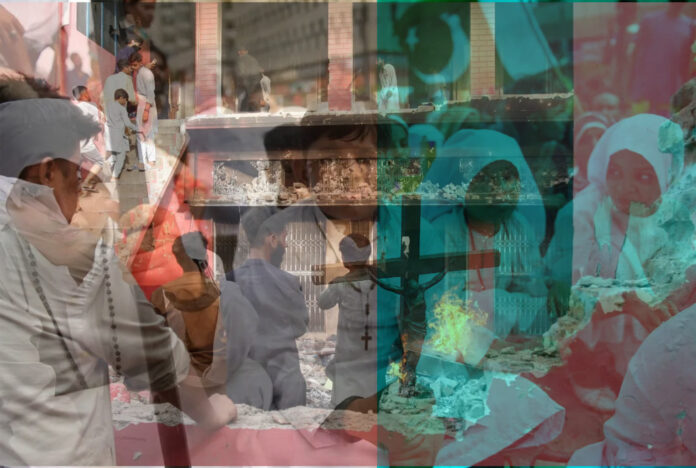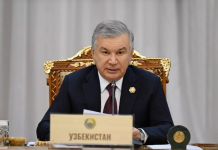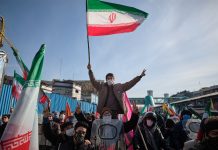By Raza Syed
Aslam is a 60-year old Christian sanitation worker from Lahore, the provincial capital of Punjab. He belongs to a community that makes up less than 2% of Pakistan’s population, but accounts for an estimated 80% of all the garbage collectors and sweepers in the country. This occupation is considered very low and demeaning in the society, and the Christians who do it are often called “churah”, a derogatory term that means “sweeper”. This label is so ingrained in the social perception that even Christians who have better jobs are still seen as “churah”.
Aslam never received any formal education, nor did his parents or his four children. This is a common situation for many poor families in Pakistan, who have to send their children to work at an early age to survive. The literacy rate among Christians in Pakistan is only 34%, compared to the national average of 45.56%, according to a report by the National Commission for Justice and Peace. This is surprising, given that there are many educational institutions in Lahore that were established by Christian missionaries during the British rule. These institutions used to provide quality education for many years after the independence of Pakistan, and are still run by the Christian community. One would expect that these institutions would have improved the literacy rate of Christians in Lahore, but that does not seem to be the case.
Despite the hardships and discrimination he faces, Aslam is a humble and cheerful person. He has a positive outlook on life and is proud of his work. He told me that people treat him with respect when he goes to their homes to collect trash. “When I ask for a glass of water, they give me sweet drink”, he said with a smile.
However, when I asked him about the general attitude of people towards Christians in the society, he became more serious and cautious. He said that people are usually alright with them, but he also admitted that he is aware of the increasing violence against Christians in the country. He was especially concerned about the Jaranwala incident, where a Muslim mob attacked churches, businesses and homes of Christians in August this year. The mob was enraged by some blasphemy allegations and set fire to 26 churches and many houses owned by Christians. Aslam was lucky that none of his family members were harmed in the incident, but he shared the horrifying stories of the destruction and terror that the mob inflicted on the peaceful Christian community of Jaranwala.
To get another perspective on these issues I also interviewed a young Christian man with an educated background. He is 24 years old; he has just finished his medical degree and is now studying for international exams. Both his parents are educated and are working professionals.
When asked if he had faced discrimination at workplace, social groups or in educational institutions, he answered that he did not face much discrimination in those settings.
When he was asked what, in his opinion, the struggles of Christians in Pakistan are, he took a considerable pause before answering; he appeared to be gathering his thoughts. With a solemn look he iterated that to be a Christian in Pakistan was a tricky business. The Christians here needed to always be careful not to offend anyone and not just from a religious point of view but in anyway because the small disagreement can escalate and can become something much dangerous. He also shared his parents’ advice not to talk on religion with anyone. He was of the opinion that minorities in Pakistan have to be very smart and select carefully whom and what to talk and stressed, “The financial and mental satisfaction is in moving abroad”.
The next question was whether he felt satisfied on the overall status of Christians in the country. He expressed that he himself was a medical student and had come that far with hard work and had the same opportunity as the rest of the population. He did not blame others for the present condition of Christians. He seemed disappointed that the people of the Christian community despite of having equal opportunity and vast network of missionary schools were not keen on going to school and getting a degree.
Before we head down to the question on church attacks and other acts of violence against this particular community, it would be useful to know the background for better understanding of issues. The Blasphemy Laws were introduced by the British and have been present since 1860. Pakistan inherited these laws and from 1980 to 1986 these were made more severe in an attempt to radically Islamize the country. A clause was inserted in the above mentioned law that states that blasphemy against Prophet Muhammad will carry a penalty of death, or life imprisonment in that order.
The young doctor admitted that due to the rising wave of violence against his community he did not feel very safe in Pakistan. He also said that in 2015 his relatives were present in the church in Youhanabad which was bombed. He maintained that although he did not discuss about attacks on churches but it pains when innocent people are killed without a fair trial. “There’s penalty when someone shows disrespect to Islam but there’s no penalty when someone shows disrespect to other religions”, he opined. He also shared with us the incident when a close Christian friend of his was wrongfully implicated in the blasphemy charge but was luckily acquitted as he was with a professor who vouched for him.
The young Christian also disclosed that there had been a number of forced conversions and that he had also been pressured to become a Muslim which he declined.
Christians have contributed a lot to the social fabric of Pakistan, from cleaning the homes and streets to educating the new generations. Their services and rights should be recognized and respected by the society and the state. If they feel increasingly vulnerable and insecure, it is a sign of a serious problem that needs to be addressed urgently.






